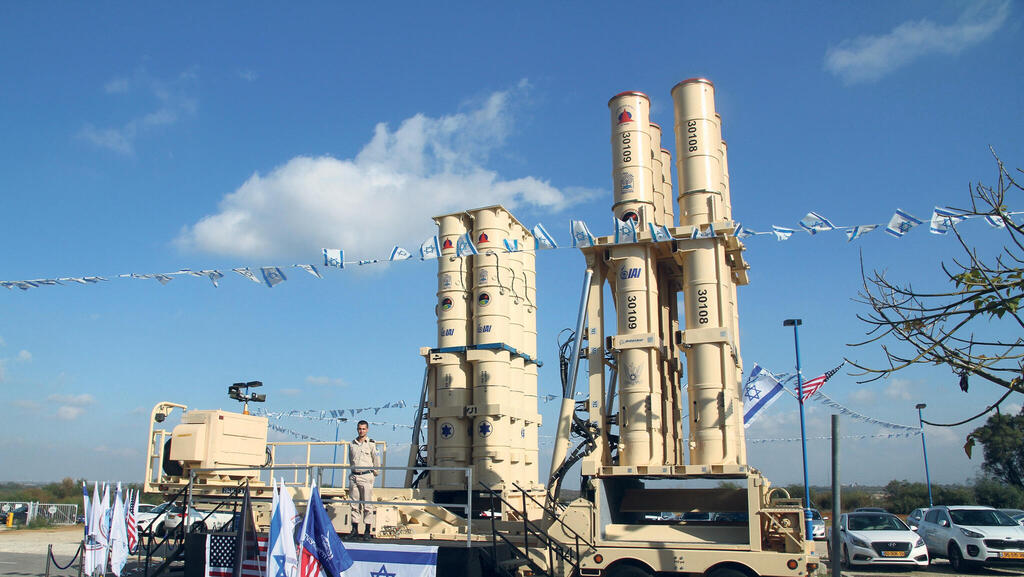
Analysis
Are Israeli arms exports facing a decline?
In 2023, Israel's defense industry exports broke a record, surpassing $13 billion. However, this growth is expected to be halted due to ongoing conflicts, government conduct, and foreign relations, which are creating global delegitimization. Since the outbreak of the war, Israeli defense companies have lost substantial deals, each worth several hundred million dollars.
Typically, the Ministry of Defense and defense industries would celebrate such record-breaking export data. In 2023, defense exports soared to an all-time high of approximately $13 billion, marking the fourth consecutive year of record-breaking growth. This trend highlights the strength of Israeli companies in global markets, offering products like air defense systems, intelligence tools, and unmanned aerial vehicles that meet the combat needs of armies worldwide.
However, these are not typical times, and Israel is not celebrating. Even the traditional Israel Defense Awards ceremony, which was to honor the developers of Rafael's David’s Sling defense system and the anti-tank missile developers in the Defense Ministry's Tank Administration (MANTAK), was postponed to a more appropriate time.
While the Department for Defense Exports in the Defense Ministry presented the annual export data, the Eurosatory international arms exhibition opened in Paris, France, without Israeli defense companies. Eurosatory is just one event in a surge of global delegitimization against Israel, driven by the high number of Palestinian civilian casualties and widespread destruction in Gaza. This situation is influencing global public opinion and increasing calls to end the war. With no end in sight to the conflict, senior officials in the defense industries expressed concerns about maintaining the growth trend in defense exports. A senior industry official admitted to Calcalist that the situation is challenging, with growing demand for weapons systems but significant difficulties due to the delegitimization of Israel. This has resulted in delays and cancellations of new deals.
Since the war began on October 7, Israeli defense companies have lost several substantial deals worldwide, each worth several hundred million dollars. While the companies refused to name the countries involved, it is estimated that most are European.
The Gaza effect cools the Ukraine effect
The defense establishment fears that the "Gaza effect" will cool the "Ukraine effect," characterized by a surge in global demand for weapons following Russia's invasion of Ukraine in February 2022. This surge significantly boosted Israeli defense sales over the past two years. The ongoing Ukraine conflict has led to an arms race, with many armies seeking Israeli weapons and defense systems that have proven effective in combat. The 2023 defense export figures reflect this impact, with 35% of transactions involving European countries, including a significant sale of Rafael's David’s Sling air defense system to Finland for NIS 1.3 billion. The massive IAI deal with Germany for the Arrow 3 defense system, worth approximately NIS 14 billion, will be included in next year's report.
The most significant growth in 2023 occurred in Asia and the Pacific, with 48% of Israeli defense exports directed to countries like India, Vietnam, and the Philippines. This includes substantial exports to Azerbaijan. Defense exports to these and other countries jumped by 18% compared to 2022.
Challenges and New Opportunities
A few days before the Hamas attack on Israel in October 2023, the Azerbaijani army launched a major offensive on Armenia, occupying the Nagorno-Karabakh region. Israel supplied the Azeri army with various weapons, including drones and advanced missiles. The Director General of the Ministry of Defense, Eyal Zamir, visited Baku shortly before the attack, and foreign reports suggest that Israel's generous supply of weapons to Azerbaijan is in return for access to the Iranian border and oil.
In contrast, the countries of the "Abraham Agreements" accounted for only 3% of Israel's defense exports in 2023, down from 24% in 2022. Despite this decline, a senior Israeli official clarified that this does not indicate a cooling defense market or negative sentiment towards Israel. The process for security deals is lengthy, and Israeli industries have signed several new deals with these countries in 2023, totaling several hundred million dollars.
The war in Gaza and other fronts affected Israel's defense marketing throughout the last quarter of 2023, a critical period for promoting defense deals. The defense industries were forced to reverse their production plans to support the IDF, which led to delays in supplying other countries. Senior officials, including Zamir and Yair Koles, requested delays in supplies worth billions of shekels to prioritize IDF needs.
Despite boycotts, delegitimization, and future uncertainties, the defense establishment believes the war may open new opportunities for Israeli industries. Effective weapons on the battlefield attract global interest, and the IDF's combat challenges may drive new developments. These include active defense systems using powerful lasers and defenses against hypersonic missiles.
The IDF's fight against Hezbollah in the north has revealed gaps in areas like dealing with suicide drones and anti-tank missiles. Addressing these gaps is expected to accelerate the development of products that could interest many countries worldwide.














